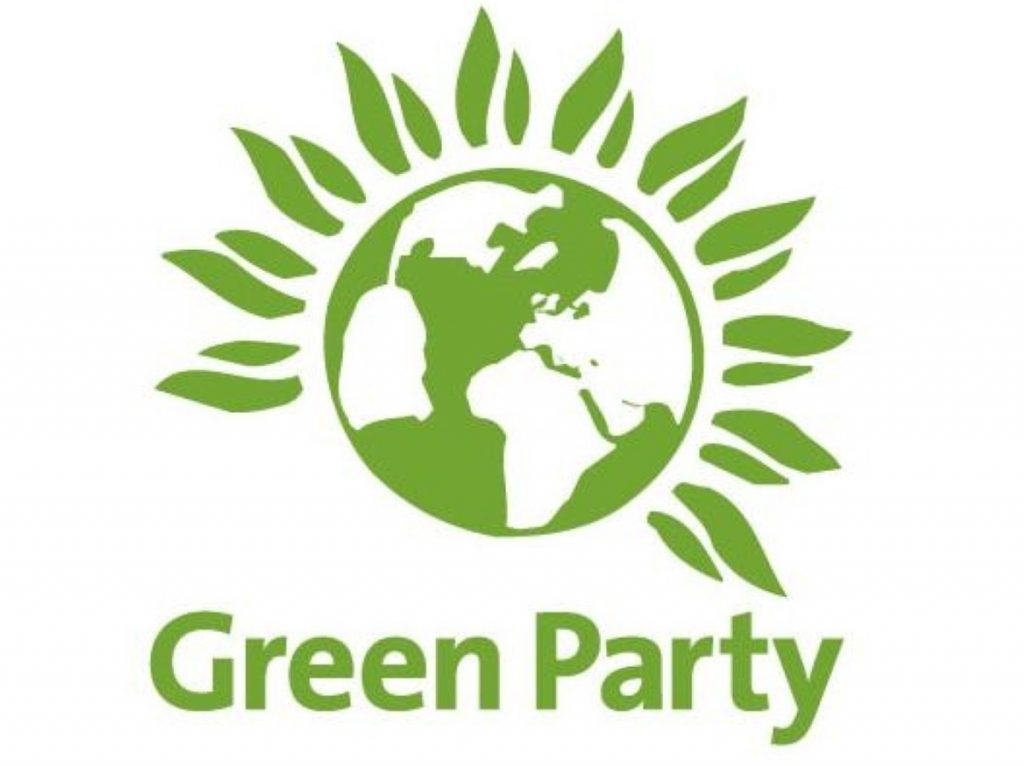Comment: The knives are out for the Green party
By Molly Scott Cato MEP
In spite of Ofcom's suggestion that the Green party is not a major party there have been many subtle indications that we are now to be treated as just that. The first big clue came when David Cameron managed to utter the words 'Green party' in the Commons after years of pretending we didn't exist.
Now we even have our own celebrity sponsor in the form of Vivienne Westwood. But perhaps the most obvious sign is that our policies are finally coming in for scrutiny. I say scrutiny, though that is perhaps too generous a word; attack is probably more apt, but that is what a grown-up party ought to expect.
The policy that has come under the most pressure is that of the citizen's income. First we had Andrew Neil on BBC Sunday Politics interviewing Green party leader, Natalie Bennett. Neil acknowledged on Twitter afterwards that he had interrupted Natalie rather a lot as she tried to explain this emancipatory policy. Behaving like a grown-up politician herself, she refused to be drawn on final costings until the Green party manifesto for the general election is published. However, it doesn't take much thought to realise that with so many people now on either a benefit or a pension, the marginal cost of introducing a weekly payment as of right is much less than the overall figure of the benefit itself. Natalie did point out that the benefit will also be used to balance tax allowances and national insurance exemptions, further reducing the gross cost.


Rather more surprising was the article by Patrick Wintour at the Guardian on this policy. Based on some rather primitive research the article suggested that citizen's income, rather than a policy designed to achieve equality, would actually hurt the poor. This actually represented some sort of progress, since Wintour, having looked at the figures, made no challenge on the affordability of the policy. The design of policy that was criticised here was not the design the Green party is proposing. But that didn't prevent Wintour from implying the Green party would cheerfully deprive the vulnerable of their income. The reality is that any changes to the welfare system on such a radical scale will have some unforeseen consequences, but these can be short in duration and can be dealt with by transitional measures.
The third such attack on the Green fiscal outlook arrived from Tom Papworth of the liberal think tank Centre Forum in the New Statesman. This attempted to predict how much money would be available through the Green policy of a wealth tax. He made no attempt to argue that inequality is a good thing, presumably because such an argument would not find a wide hearing. Instead, its focus was on the 'dynamic effects' of introducing a tax on the wealthy, by which I assume the author meant that the wealthy would seek to avoid that tax.

Green party leader Natalie Bennett was drilled about the citizen's income by Andrew Neil recently
To allow one's fiscal position to be determined by the selfishness and whims of those who see no need to contribute to society seems spineless in the extreme. Of course the author is right that the rich will seek to avoid paying their fair share, but the role of a politician aiming to create a more equal society is to challenge and pursue them for the contribution they should be making, not to shy away and accept their power and the disfigured society it has brought us.
The fact that these attacks have focused entirely on the costings of our policies and not on the principle of why we wish to introduce them makes it clear that our opponents are involved in a self-interested rubbishing campaign. What could and should be an open and informed discussion about the kind of society we wish to live in is obscured by weapons of mass distraction – a series of accounting exercises, using figures as weapons dressed up as irrefutable truths. The reason is obvious: when you're talking about hypotheticals – and every econometric model or discussion about how finances might appear in two or three years' time is hypothetical – you are actually in the realm of posturing and performance.
Such tactics have been used by the wealthy elites and the talking heads who support them across European societies, but in many cases they have failed. The players who have been successful in recent years are those who are offering a vision of a better future. This can be persuasive whether or not it is supported by a detailed spreadsheet and an econometric model. In fact the Green party produced a costed manifesto for the 2010 general election and will do so again for the forthcoming election. However, the decision about who to vote for on May 7th should surely be based on a party's political vision, philosophical basis and intention, rather than their ability to predict the future or make claims about the public finances.
Molly Scott Cato is Green MEP for the South West of England, elected in May 2014. She is Green party speaker on finance and has published widely, particularly on issues related to green economics. Molly was formerly professor of strategy and sustainability at the University of Roehampton.
The opinions in Politics.co.uk's Comment and Analysis section are those of the author and are no reflection of the views of the website or its owners.









